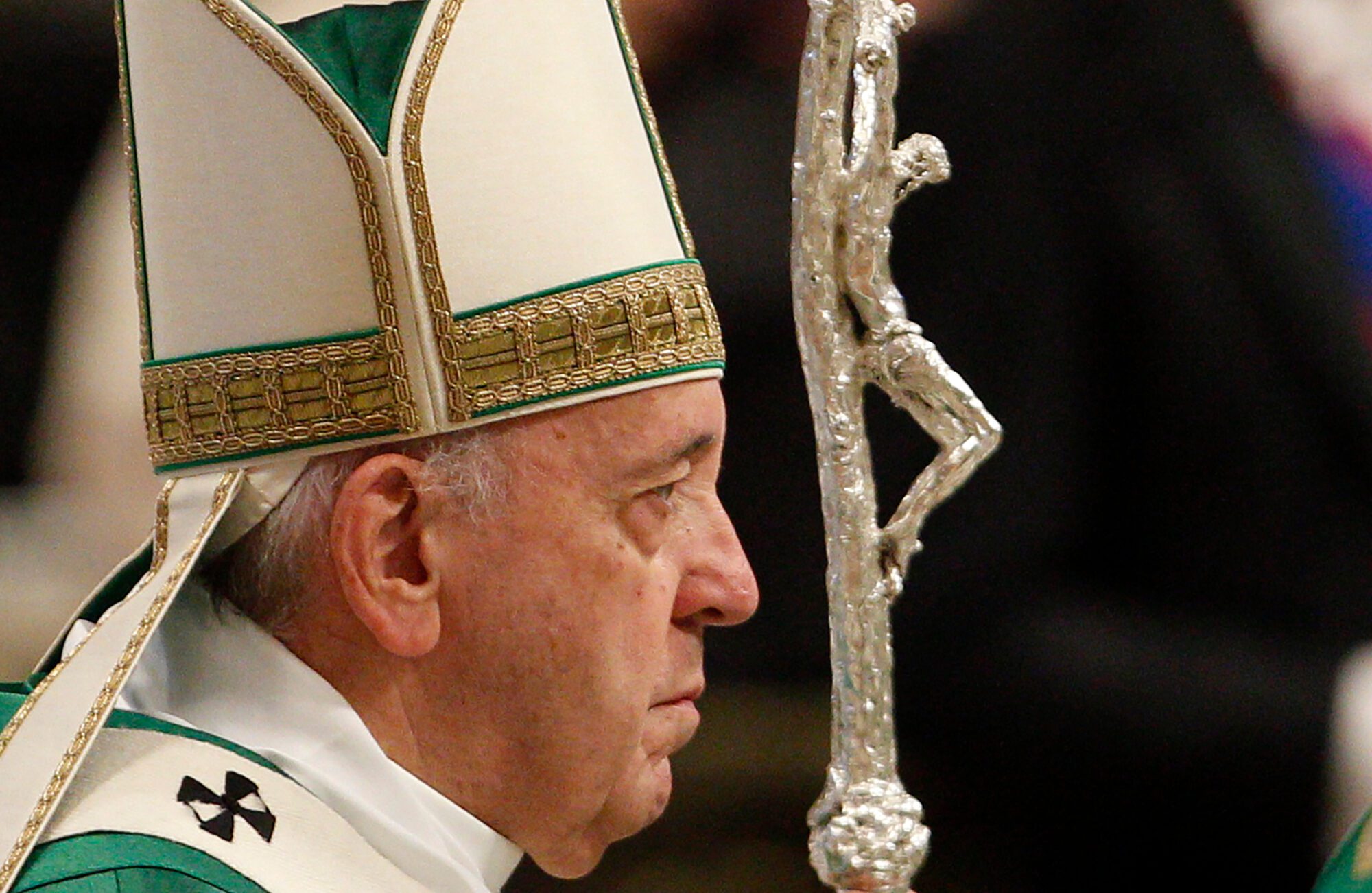
Pope Francis
Photo: Riccardo De Luca – Update / Shutterstock.com
African Cardinal Fridolin Ambongo Besungu has claimed that the results of the ongoing Synod on Synodality will be regarded as the “will of God,” as some are concerned that the synod could open up the Church to progressive ideas, such as same-sex blessings and the ordination of women to the priesthood.
“I don’t think the Synod’s goals consist in facing this way or that, but in a new way of being a Church, a new spirit,” Cardinal Besungu, who serves as Archbishop of Kinshasa, said, the Catholic News Agency reports.
The synod is the first time that non-bishops have been allowed to vote and participate in a Synod of Bishops, with 27% of the voting members being non-bishops.
“It is by virtue of baptism that we have the same responsibility before the Church, and I think all those present have the authority to speak on behalf of the Church,” Cardinal Besungu said.
This week, the Synod on Synodality is expected to discuss “Module B1,” which will see participants discuss matters of “communion and participation.”
Discussions on allowing couples who have divorced and remarried to receive communion have been discussed for years, with German Cardinal Reinhard Marx openly advocating for allowing remarried couples to receive communion as far back as 2015.
Under Catholic teaching, divorce is not permissible, although annulments of marriage can be granted when the marriage is not considered to have been valid in the first place. Those who divorce and remarry are considered to be in a state of mortal sin, namely adultery, and therefore cannot receive communion.
While the synod has only just begun, some senior members of the Catholic clergy have already expressed major concerns regarding it.
In late August, five cardinals wrote a number of formal questions to Pope Francis, known as a “dubia,” calling for clarity on issues such as the blessings of same-sex unions, women’s ordination, and what authority the Synod on Synodality has within the Church.
Among the cardinals to sign the dubia were American Cardinal Raymond Burke, Guinean Cardinal Robert Sarah, former prefect of the Dicastery for Divine Worship and the Discipline of the Sacraments, and German Cardinal Walter Brandmüller.
According to the cardinals, Pope Francis answered their questions in full sentences, rather than the customary “yes or “no” usually seen in responses to dubia, and claimed the responses “have not resolved the doubts we had raised, but have, if anything, deepened them.”
On same-sex blessings, Pope Francis and the Dicastery for the Doctrine of the Faith (DDF) replied to the cardinals saying, “It is not licit to impart a blessing on relationships or partnerships, even stable, that involve sexual activity outside of marriage (i.e., outside the indissoluble union of a man and a woman open in itself to the transmission of life), as is the case of the unions between persons of the same sex.”
“The presence in such relationships of positive elements, which are in themselves to be valued and appreciated, cannot justify these relationships and render them legitimate objects of an ecclesial blessing, since the positive elements exist within the context of a union not ordered to the Creator’s plan,” the DDF added.
However, the DDF also stated, “The answer to the proposed dubium does not preclude the blessings given to individual persons with homosexual inclinations, who manifest the will to live in fidelity to the revealed plans of God as proposed by Church teaching.”
Cardinal Burke stated last week that the questions were not meant as an attack on Pope Francis or his agenda but stated his concern for the “philosophical, canonical, and theological errors that are widespread today regarding the Synod of Bishops and its [first] session.”
“It is unfortunately very clear that the invocation of the Holy Spirit by some has for its purpose the advancement of an agenda that is more political and human than ecclesial and divine,” he added.
Cardinal Burke has previously criticised the Synod on Synodality in the preface to the book The Synodal Process is a Pandora’s Box, co-authored by José Antonio Ureta and Julio Loredo de Izcue, in which he labelled synodality “a term which has no history in the doctrine of the Church and for which there is no reasonable definition.”
The Synod on Synodality also comes after the German Synodal Path, a conference that approved same-sex blessings and called for the opening of the priesthood for women.
Despite pushback from the Vatican and even their own bishops in some cases, priests in Germany have already been blessing same-sex couples in Cologne and elsewhere.
